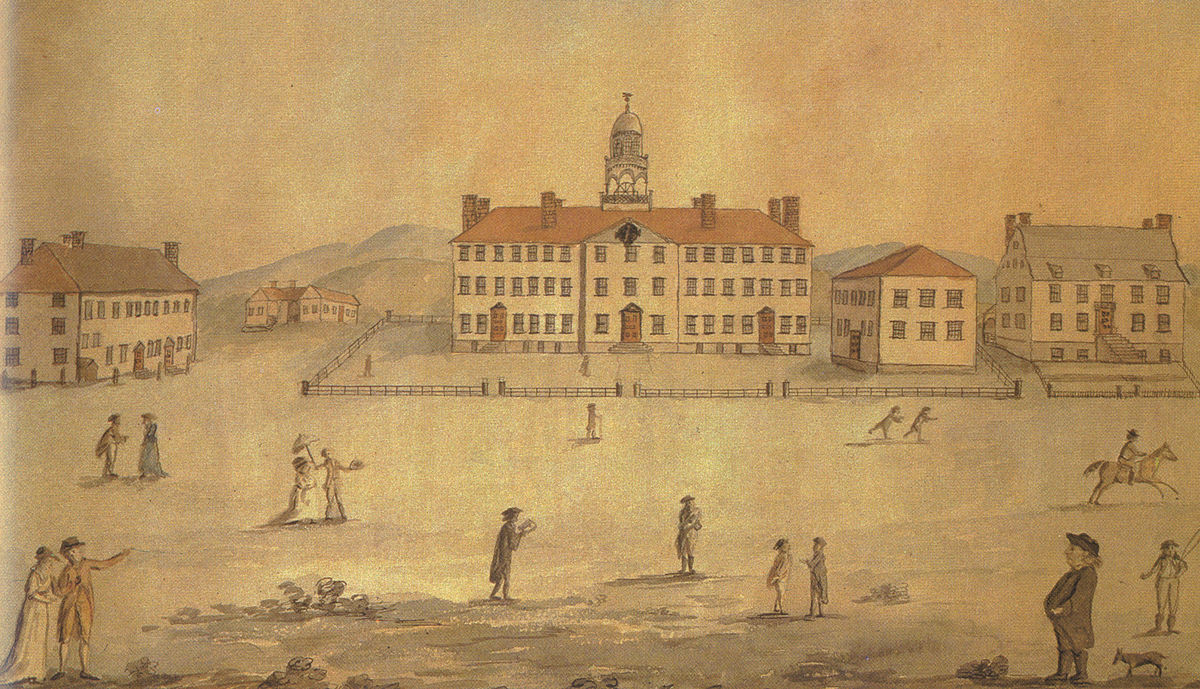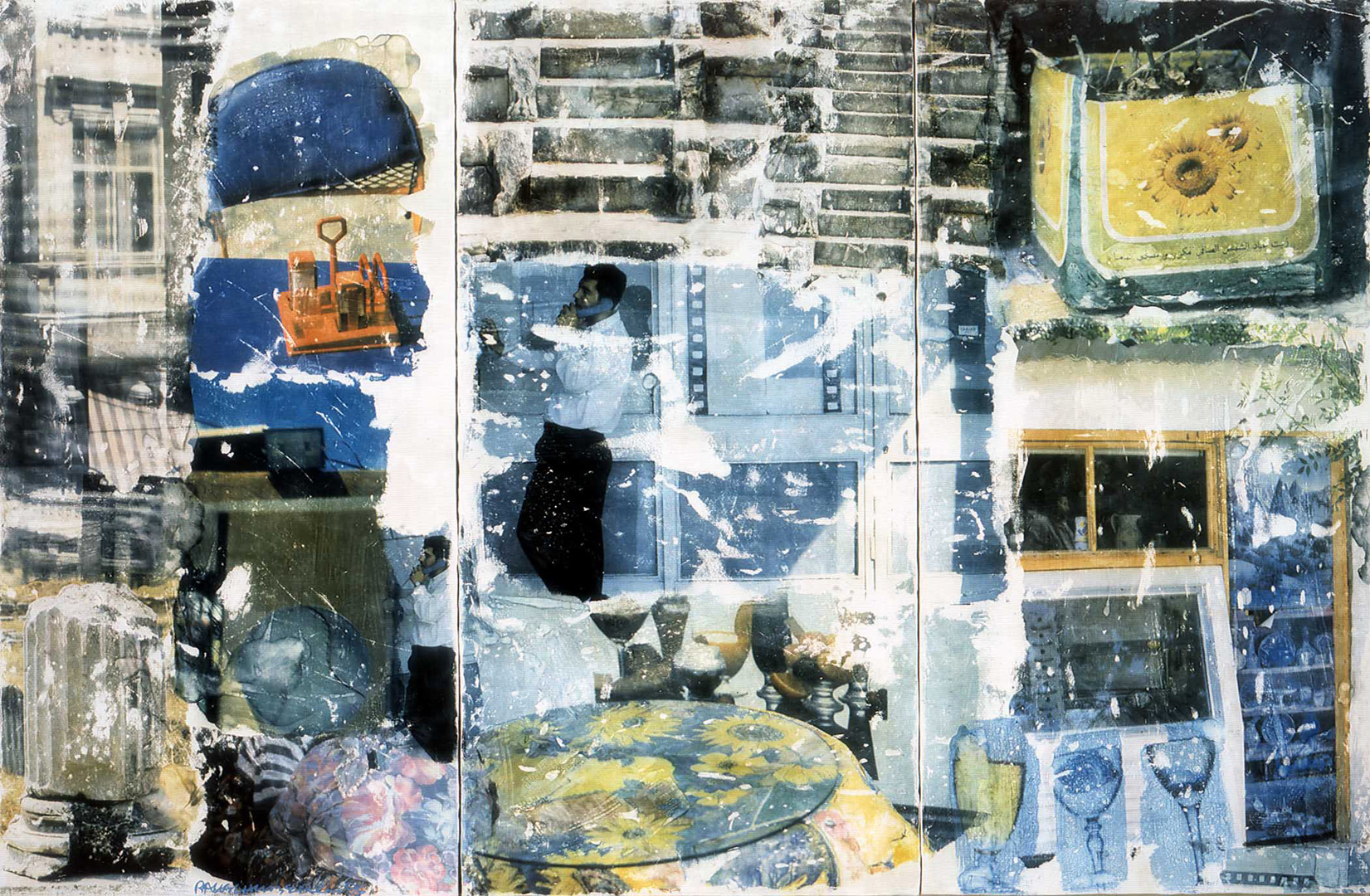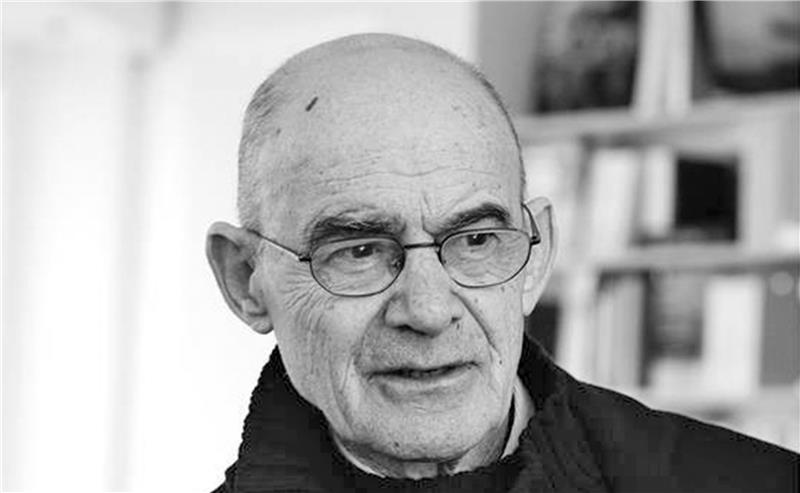There is a world, not too dissimilar from our own, in which Jonathan Franzen is a professor of creative writing at a small liberal arts college in the Midwest. He still has his bylines at the New Yorker and Harper’s (in fact, he writes for them more frequently); he still has his books (even if they’re all a bit shorter, one of them is a collection of short stories, and his translation of Spring Awakening lives with his unpublished notes on Karl Kraus in the Amish-made drawer of his ‘archive’); he still has his awards (except his NBA is now an NEA). Despite his misgivings about the effect of social media on print culture, he also has a Facebook page, which he uses to promote his readings and share photos of his outings with the local birding society, and a Twitter account, which he uses to retweet positive reviews and post about Julian Assange. Aside from his anxiety about how much time teaching and administrative duties take away from his ‘real work’ as a novelist, whether his diminishing royalty checks will be enough to cover his mortgage and his adopted son’s college tuition, and whether it would be wise to keep flirting with the sole female member of his small group of student acolytes, the greatest drama in his life occurs when he periodically becomes the main character on Twitter for saying something hopelessly out of touch – pile-ons he less-than-discreetly attributes to other writers’ envy for his hard-won success.
In the actual world, however, Franzen’s face has been captioned ‘Great American Novelist’ on the cover of Time. His publicist has not been too embarrassed to say that he is ‘universally regarded as the leading novelist of his generation’. In this world, he has the time, money, and freedom to do nothing but write what he pleases. Before he finishes a single sentence, he can take for granted that there will be a wide audience for it. In this world, publication alone is enough to justify his book’s presence on the New York Times Best Seller List, on the shelf of every airport bookstore on the planet, and in every outlet – print and online – that still reviews fiction. If privately he hankers after the Pulitzer that yet eludes him, he can console himself with the knowledge that it would amount to little more than a sprinkle of establishment recognition on a career that has evolved beyond the power of prize committees. In this world, when he goes hunting for comp titles, he finds them, not in any of his contemporaries, but in canonical Victorians like Dickens and Eliot. Whether he is America’s indispensable novelist is a matter of opinion, but in this world no one disagrees that since the publication of The Corrections in 2001 he has been the inescapable literary figure of the world’s inescapable nation.
The reason for the difference between the hypothetical Franzen and the real one can perhaps be summed up in a single word: Oprah. If the selection of The Corrections by Oprah’s book club was largely a matter of luck, and his rejection of it a career-defining risk, his reconciliation with Oprah after the publication of Freedom was a piece of canniness that is paying dividends to this day. Still, the plausibility of the former presents a problem for the critic of the latter. The hypothetical Franzen’s books would rarely be read and sporadically reviewed; the real Franzen’s novels cannot be read or reviewed without reference to the vast publicity apparatus that has been put at their disposal. Other than with time, there is no clean way of separating a Franzen-text from the para-Franzen. With Franzen, we are dealing with what philosophers call an ‘essentially contested concept’. Discussions of his post-Corrections work tend to devolve quite quickly into a series of rival camps which all end up talking past each other in defense of positions – about snobbery, privilege, merit, progress – for which he is merely a symbolic proxy.
The truth of the matter is that the para-Franzen is the masterpiece, whereas the Franzen-texts are essentially mediocre. This is not an insult, exactly. Most novels are mediocre, and mediocrity has been more than enough to satisfy the basic needs of reading publics – for entertainment, for edification, for recognition of self, for communal totems, for the idle passage of time – since the days of Amadís de Gaula. For all these needs, Franzen-texts are perfectly satisfactory. Because of the para-Franzen’s acclaim, it is nevertheless a controversial proposition, so I’ll spend a little of my word count proving it. Since the success of The Corrections, Franzen has settled into a comfortable formula: from the one-word abstract noun of the title, to the use of a series of third person close perspectives differentiated by diction indexed to intelligence or worldliness, to the middle-class heartland milieu, to the East Coast/Midwest opposition, to the trip abroad subplot, to the use of Christmas as a telescoping event, to stakes that lie in the fates of marriages and nuclear families. Many novelists have tics and preoccupations to which they return over and over again throughout their careers, but there is nothing particularly Franzonian (a term notable in its absence) about his treatment of these familiar elements from the canonical novel. Indeed, his strict adherence to these conventions in Freedom and Purity have made these books targets for the increasingly widespread suspicion that the cultural prominence of literary fiction is undeserved, nothing more than genre fiction for a specific market segment.
What ought to distinguish a great novel from a passable one is not the social position of its audience, but the quality of its prose. And here, of the dozens of examples I could have chosen, is a representative Franzen-sentence:
The sky broken by the bare oaks and elms of New Prospect was full of moist promise, a pair of frontal systems grayly colluding to deliver a White Christmas, when Russ Hildebrandt made his morning rounds among the homes of bedridden and senile parishioners in his Plymouth Fury wagon.
These forty-nine words – the opening of Crossroads, the first book of Franzen’s trilogy A Key to All Mythologies, which is being touted as a culminating achievement – contain a series of errors so basic the hypothetical Franzen would not have failed to circle them in red pen had one of his eager-to-impress students turned it in for their first workshop. It begins with the sort of melodramatic statement about the weather with which he already opened The Corrections and for which Bulwer-Lytton is mocked to this day. ‘Moist’ is an imprecision; the pair of frontal systems have caused there to be moisture in the air, not in anyone’s anticipation of the unremarkable occurrence of snow in suburban Chicago in late December. Along with ‘broken’ and ‘colluding’, they produce the ‘emotional falseness’ Ruskin described when he coined the term ‘pathetic fallacy’. If the repetition of the ‘pro’ sound in ‘New Prospect’ and its cognate ‘promise’ a few words later is evidence of a tin ear, the ironic-symbolic place name and the portentous-symbolic make and model of the station wagon are evidence of a heavy hand. The second clause is a misplaced modifier and the appearance of ‘grayly’ in it is a textbook violation of the adverb rule. Granted, this is not the sort of merely competent, work-a-day, unexciting prose for which young, degree-holding American novelists are often chastised; it is nonetheless prose of a very deep shade of purple, and its author is not in a position to plead inexperience, time pressure, editorial meddling, or the need to appease the public.
In one respect, however, Crossroads is a departure for Franzen: historical fiction by a novelist who once claimed to be ‘particularly resistant’ to the genre. Of the book’s next 145,000 or so words, around half unfolds on 23 December 1971 and around half during the following spring (with a coda that takes place during Easter, 1974). Dissatisfied in his marriage, Russ, the associate minister of the First Reformed Church, has fallen in love with one of his widowed parishioners. His wife, Marion, is punishing herself for her guilt about the life she led before she met Russ by overeating and is secretly seeing a psychiatrist. Their eldest son Clem, a student at the University of Illinois, has had a crisis of conscience, dropped out of school, and revoked his student deferment to Vietnam. Becky, their second child, the most popular girl at New Prospect Township High School, has received a surprise inheritance from her mother’s estranged sister, and has fallen in love with Tanner Evans, guitarist in the band Bleu Notes. Their third child, the mentally unstable Perry, is using his genius-level IQ to conceal his budding drug addiction, unless he is using drugs to dull the pain of his intelligence. At the age of nine, Judson, the only Hildebrandt who does not get his own chapters, is as yet too young to do anything but watch with incomprehension as his family disintegrates.
The lives of the people of New Prospect, adults and teens alike, circle around Crossroads, the church youth organization Russ founded with the charismatic young minister Rick Ambrose, and named after the Robert Johnson song recently made popular among white suburbanites by the English band Cream. Three years earlier, Russ was humiliatingly excommunicated from the group due to an untoward comment he makes about Marion to a teenage girl during its yearly service trip to a Navajo reservation. Under Ambrose’s leadership, Crossroads has become something more akin to an encounter group than a church group however. One character calls it a ‘cult’; Ambrose himself calls it a ‘social experiment’. In this form, it sucks first Perry, then Becky into its orbit.
A crossroads, of course, is a folkloric setting where a fateful decision is made, where one might choose otherwise – not to slay the stranger blocking the road, not to sell one’s soul to the devil—though one never ends up doing so. The Hildebrandt family unit finds itself at a crossroads on 23 December 1971, and by implication, so does the nation. We will have to wait for the second and third volumes of A Key to All Mythologies to see to what degree this ultimately proves true for Russ, Marion, and their children. As for the United States, we already know what happens: the Nixon Shock will pave the way for financialization of the economy; the Powell Memorandum will lead to the corporate capture of the media and the universities; the Southern strategy will embed white supremacy and Christian nationalism into the electoral fortunes of the Republican party; the War on Drugs will create the largest prison system in history and revive Jim Crow; the Vietnam War will continue for another three years and military defeat will only be a road bump in the expansion of the American Empire across the globe; the findings of a paper entitled ‘Atmospheric Carbon Dioxide and Aerosols: Effects of Large Increases on Global Climate’ will go unheeded; the grandchildren of ARPANET will inherit the earth.
The question, for Franzen, is whether, in telling his story about the Hildebrandts, he provides a richer, more complex, more profound aetiology than the ones we’re used to. Yet aside from a keen insight into the outsized role the status hierarchies produced by the institution of high school have played in the making of American values and his clever staging of the way therapeutic fads hollowed out certain liberal political impulses in American Protestantism, we are served yet another helping of sex (adulterous desire for Russ; incestuous desire for Clem; first love for Becky), drugs (‘ludes for Marion; pot, ‘ludes, Dexies and coke for Perry), and rock n’ roll (whose cachet in the person of Tanner Evans is responsible for the popularity of Crossroads) with a side of War, What Is It Good For, all of which is covered with an insipid gravy of period signifiers. (That said, there is something anachronistic and even calculating in the explicitness of Russ’s critiques of white saviourism and power differentials in his parishioners’ interactions with members of the Black community on the South Side of Chicago and of the Navajo Nation in Kitsillie, Arizona. It is as though the para-Franzen – perhaps rightly – does not trust contemporary readers’ ability to differentiate presentation and endorsement when it comes to race. Despite this preemptive strike against the sensitivity readers, the fact remains that the non-white characters serve mainly as props in Russ’s great struggle to get laid by someone other than his wife.) Like most families, the Hildebrandts are held together in a complex network of ancient grudges and mutual deceptions, unconscious repetitions and defence mechanisms mistaken for identities. The issue isn’t that such things are too trivial to be put in a hardback-sized box and shaken up until all the permutations of dramatic irony are exhausted, but that in this case they are not strong enough to bear the social-allegorical load that Franzen has foisted on them.
Part of this is due to the limitations of the framework of the canonical novel, which is forced to reduce society to an aggregation of subjects (a.k.a., characters), the subject into psychology (i.e., narrative interiority), and psychology into desire (paradigmatically sexual desire, a metonym for motivation itself, whose friction with various social blockages – ‘instinct’ and ‘purity’ in Franzen’s terms – moves the plot forward). Franzen has taken the name of his new trilogy from the subject of Casaubon’s monograph in George Eliot’s Middlemarch (unless he’s been brushing up on René Girard). In an early passage in Crossroads, Franzen rushes in where Eliot feared to tread, having Perry hazard a hypothesis as to what the key to all mythologies actually is:
The idea was that God was to be found in relationships, not in liturgy and ritual, and that the way to worship Him and approach Him was to emulate Christ in his relationships with his disciples, by exercising honesty, confrontation, and unconditional love…[Ambrose] inspired Perry to devise a theory of how all religion worked: Along comes a leader who’s uninhibited enough to use everyday words in a new and strong and counterintuitive way, which emboldens the people around him to use the rhetoric themselves, and the very act of using it creates sensations unlike anything they’re used to in everyday life…
This is not, in fact, a convincing theory of how religion works, but the conceptual web of personal relationships, charismatic leadership, uninhibitedness in speech, novelty, and sensation does capture the puerile spirituality of the United States, where God is just another of many addictions. The most charitable way of reading Perry’s theory is ironically. Franzen is suggesting that the belief that one has found the key to all mythologies is itself a mythology, and a potentially dangerous one at that: the climax of the novel occurs on a freezing desert night when drug-addled Perry takes himself for God. But the task of the novelist-rhetorician – as this rather Bloomean-Rortyean passage would also seem to acknowledge – is not only to demythologize, it is to mythologize better.
Neither ‘new’ nor particularly ‘strong’ let alone ‘counterintuitive’, the first volume of A Key to All Mythologies gives little indication that Franzen is up to it. Then again, his own fateful decision – standing, as he put it in his 2002 essay on his erstwhile literary hero William Gaddis, at the crossroads between ‘status’ and ‘contract’ – to adopt the canonical novel’s framework and inherit its wide public and its formal limitations rather than to use his freedom and influence to extend, challenge, deepen, or reimagine it, was made long ago. Thinking back on his meeting with Marion, Russ laments, ‘She’d seduced him into a contract before he knew his value in the marketplace’. Franzen made no such mistake when he wrote Crossroads. For an American novelist to court comparison – even tongue-in-cheek – to Middlemarch in 2021 seems so pompous that it is easy to overlook that it’s not quite the virtue it’s presented as being – and not simply because the lesson of modernism, unlearned here, was that literary tradition is more honoured in the breach than in the observance.
Crossroads arrives into a world that has grown bearish about the prospects of the United States and for once, Americans seem to agree. This marks an epochal shift in national mythology. During the years of Franzen’s fame, America has turned its back on its characteristic optimism, its openness to experiment, its future-orientation – an overdue concession to the reality of what the United States has become during the period: an Old World Empire. (We should be under no illusion that this is what underwrites its literary culture’s command on the world’s attention.) Whether Crossroads, as a cultural artifact, should be understood as a sign or a symptom of this shift will be for future scholars of American Literature (if there are any left) to decide. It is nonetheless revealing that the person regarded as the nation’s ‘leading novelist’ should stake his claim to the title not by attempting to write the novel of tomorrow, but by attempting to update a novel published a century and a half ago, at the height of the British Empire. Crossroads is far from the novel that America needs; unfortunately, it is exactly the one it deserves.
Read on: Peter Gowan, ‘Crisis in the Heartland’, NLR 55.


